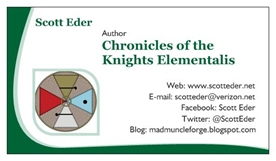Guest Post by Petra Klarbrunn
“Please, sir, I want some more,” said little Oliver Twist.
It’s one of the best-known lines from Charles Dicken’s novel partly because it was shocking to the other characters. Nobody does that…nobody asks for something from Mr. Bumble.
Unfortunately, that thinking has spilled over to how authors something think. Honest, it’s perfectly fine if you ask for something from your readers, understanding that what you end up with might not be what you expected.
Books with lots of reviews act as a psychological influence on your potential readers. While they might be skeptical about 100 perfect 5-star reviews, it still makes them wonder what all of the fuss is about. If so many people loved a particular book, it must be good. Right?
Therefore, you should consider asking your readers to post an honest review. Here are a couple of suggestions for doing so.
- Ask for an honest review, not a 5-star review.
Demanding a top review score is not only pretentious, but it’s rather gauche. What you’re looking for is someone’s opinion, no matter what rating they assign. If they absolutely hated your book, that’s fine. Having a low-rated review gives the rest of the reviews a bit more authority and makes it appear as though the rest of the reviews are a tad more trustworthy. Asking your readers to post a review on Amazon, Goodreads, B&N, etc. is perfectly acceptable behavior.
- At the end of your books, place a standardized blurb asking for a review.
The reader just finished reading your book, so there’s no time like the present to ask for an honest review. E-books should have a link to places the reader can post reviews. You can combine the links to a single page on your blog for print books. In fact, you can add in some bonus material for folks who want to visit your website, such as signing up for your newsletter or posting additional story material that didn’t make it into the final published work.
- Give suggestions for reviews.
Some folks are hesitant to post reviews because they don’t know what to say. Give them some leading questions to assist them. How did the book make them feel as they were reading it? Did the characters seem “real”, and were you concerned for the protagonist? If there was something they didn’t like, ask them to be specific. Ask them not to include spoilers, particularly the ending twist.
- Explain why you are asking for honest reviews.
Most readers do not know how important reviews are for authors. Explain to them that it helps your novel ranking, it helps to sell more books (so you can continue writing), and it assists with the search engine ranking when browsing.
So, how does getting reviews help you get discovered? Glad you asked.
Books that have higher review rankings are rated higher with Amazon’s sooper-secret algorithms. The current estimates are that if a book has over 26 reviews, and those reviews are above 4.0 on average, you have a far better chance of getting your book in front of browsing readers. If your book is highly rated, you can easily get your book into some of the promotional websites such as BookBub.com.
Books with excellent reviews can provide you with blurbs for marketing and, if the reviewer is well-respected, allow you to update your cover with the quote. Having a blurb from Stephen King helped Jack Ketchum become a household name in the horror field. Getting a blurb from someone like George R. R. Martin would certainly help your fantasy novel take off. Review quotes can be gold for your marketing efforts.
Above all, don’t be a pushy author. Ask politely once. If your best friend doesn’t want to leave a review, respect that decision. If Mom says she’s too busy to review your latest erotica story, that’s certainly her prerogative. Hopefully, you’ll have enough readers who, on reading your request and why it’s important to you as an author, will post something after they’ve read your work.





